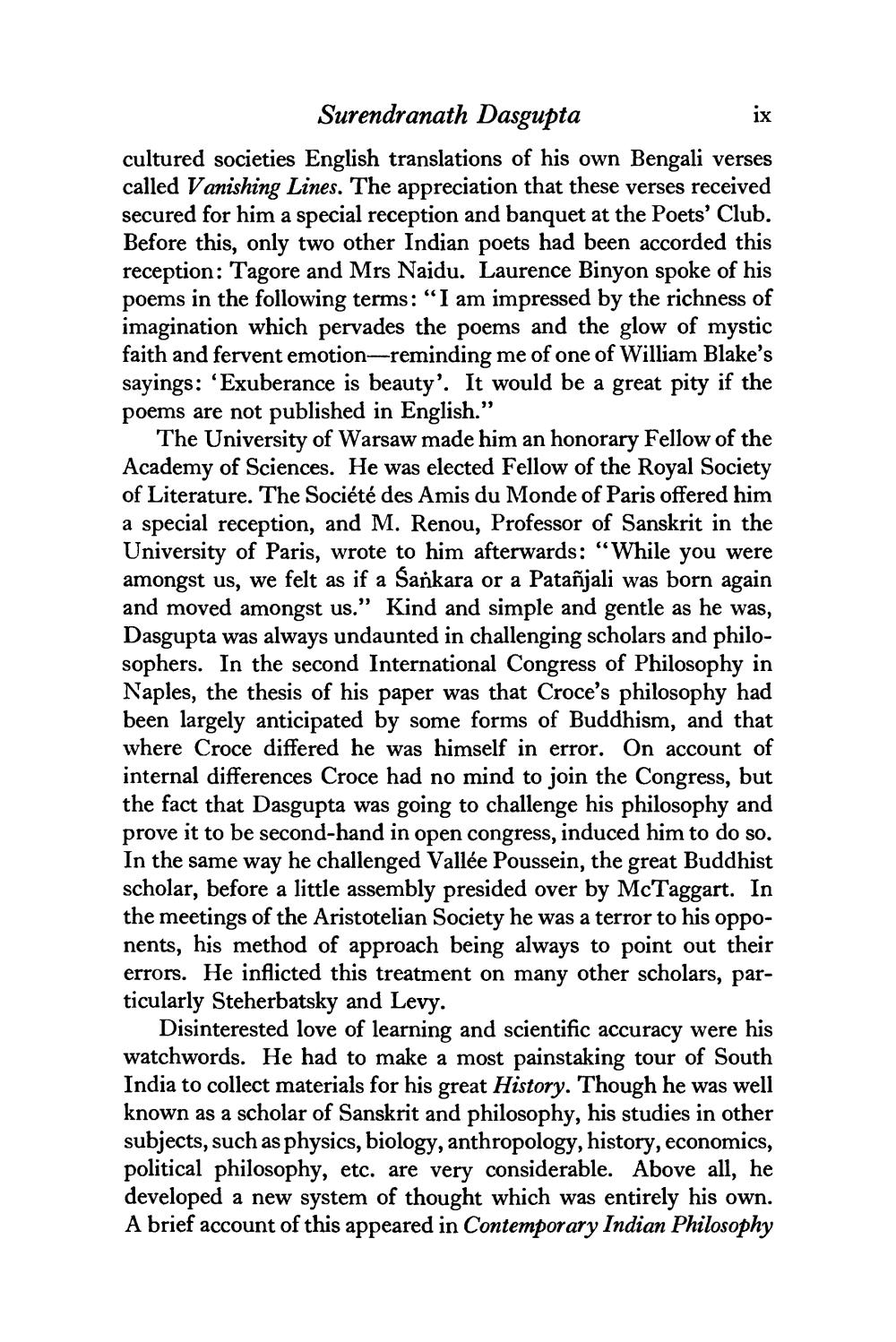________________
Surendranath Dasgupta cultured societies English translations of his own Bengali verses called Vanishing Lines. The appreciation that these verses received secured for him a special reception and banquet at the Poets' Club. Before this, only two other Indian poets had been accorded this reception: Tagore and Mrs Naidu. Laurence Binyon spoke of his poems in the following terms: “I am impressed by the richness of imagination which pervades the poems and the glow of mystic faith and fervent emotion-reminding me of one of William Blake's sayings: 'Exuberance is beauty'. It would be a great pity if the poems are not published in English.”
The University of Warsaw made him an honorary Fellow of the Academy of Sciences. He was elected Fellow of the Royal Society of Literature. The Société des Amis du Monde of Paris offered him a special reception, and M. Renou, Professor of Sanskrit in the University of Paris, wrote to him afterwards: “While you were amongst us, we felt as if a Sarkara or a Patañjali was born again and moved amongst us." Kind and simple and gentle as he was, Dasgupta was always undaunted in challenging scholars and philosophers. In the second International Congress of Philosophy in Naples, the thesis of his paper was that Croce's philosophy had been largely anticipated by some forms of Buddhism, and that where Croce differed he was himself in error. On account of internal differences Croce had no mind to join the Congress, but the fact that Dasgupta was going to challenge his philosophy and prove it to be second-hand in open congress, induced him to do so. In the same way he challenged Vallée Poussein, the great Buddhist scholar, before a little assembly presided over by McTaggart. In the meetings of the Aristotelian Society he was a terror to his opponents, his method of approach being always to point out their errors. He inflicted this treatment on many other scholars, particularly Steherbatsky and Levy.
Disinterested love of learning and scientific accuracy were his watchwords. He had to make a most painstaking tour of South India to collect materials for his great History. Though he was well known as a scholar of Sanskrit and philosophy, his studies in other subjects, such as physics, biology, anthropology, history, economics, political philosophy, etc. are very considerable. Above all, he developed a new system of thought which was entirely his own. A brief account of this appeared in Contemporary Indian Philosophy




